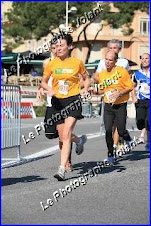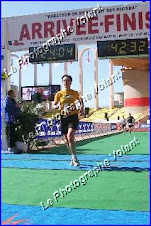For those of you who were waiting for additional observations of what makes the French French, your wait is over! I'll do some more of these, but here are three more topics in the continuing series.
Strikes – In “A Town Like Paris,” the author tells of a retired couple who live on his block in Paris who appear to attend whatever strike is going on in town – they describe it as their civic duty. I thought this was probably a caricature of Paris life. But after watching four months of the national evening news in France, I realize that this IS France – another part of life and culture that makes the French French. The French revel in their ability to protest (it is called a “grève”) on the streets of Paris. Almost always it is a union of workers protesting some facet of their work life or compensation that is about to be altered by the French government, but occasionally it is something more universal, like a protest against the war, or against a police action, or American oppression (OK, so I go overboard, but it has happened).
For those of us who live outside Paris, we only experience these marches via the quick quips on the evening news. But a march down the Champs Élysée is not the only type of action that marks the French “grève.” Transportation unions get particular mileage out of their strikes, for example, the southwest of France has been affected by a strike by SNCF (the national train system in France) conductors for the past four (!) weeks. Intermittent train travel occurs, but for most travelers and commuters, this is a royal PITA. In another example, striking Air France pilots, protesting proposed changes to their retirement plans, affected air travel intermittently for several months. And then there was the strike by school teachers back in September, which affected schools all over France. Interestingly, Sarkozy had put in place a provision so that such a strike would not close down schools, but apparently, the plan was not able to be fully implemented in all regions. For a socialist country, it is not a surprise that so many workers feel comfortable expressing their views to the government; after all, they probably won’t lose their jobs. The United States has lost quite a bit of this “strike” mentality to get things changed, but then again, it’s not apparent to me that the strikes actually change anything. But it certainly is good press.
Clothing – When I was first travelled overseas with my family in the 1970’s, I was 10 – not exactly clothes conscious. But I look back at pictures from that trip in 1972, and you can see me and my sister in bell bottoms, wearing clogs (we were in Scandinavia) and bandannas. Pretty typical American 70’s garb. Five years later, when my family headed for Europe again, I was much more aware of the fashions around me, but we were camping – it was August, and jeans and t-shirts were pretty much all I brought on the trip. But I was much more aware that you could identify my family as American by the clothes we were wearing – and how easy it was to identify other Americans just like us. By the end of the trip, we had all bought clothes (mostly shirts) from our travels around France and England, clothes that were less identifiable as “American,” our small effort to try and blend in with the natives.
When I moved to Nice, I took advice from Priscilla, and didn’t bring too many clothes. After all, who was I trying to impress? But I did not take her advice to leave my t-shirts at home, after all, they are my runner’s trophies (the French do not wear t-shirts like Americans, but I thought racing t-shirts did not count), but I did try to bring simple things that didn’t scream “USA.” But you can definitely tell that I am not from France when I go down the street in Nice. My Lands’ End rubber shoes, my waist high Gap jeans, my LL Bean turtlenecks, the primary colors of my clothes (mostly green these days), all pretty much mark me as not from France. I wasn’t planning on buying lots of clothes here (not in my budget), but I have made a few purchases that help me blend in to my community. My black high-heeled boots were my first purchase – women all over France wear high-heeled boots (short, mid-calf, and high); they are completely impractical from my point of view, but I wanted to fit in, and besides, they look pretty cool. My second purchase was a winter coat. Priscilla joked that I would only wear it a few times, predicting a mild winter. But I was glad I had spent a few days finding the coat I wanted; I wear it all the time these days! (The foot of snow in Marseille this week indicates that the Cote d’Azur temperatures are in flux, although we have maintained temps in the 50s pretty much this month in Nice.) My third purchase came this week: low-slung, tight-fitting black jeans. NOW I will completely fit in. With my jeans, black boots and black coat, no one will think I’m an American – unless they look under my coat and see the turtleneck and cardigan I’m wearing!
Quand Même – Learning a foreign language in a classroom and learning a foreign language on the streets in the country where you live is like learning to cook by drawing pictures rather than actually measuring out ingredients and watching your creation cook in the oven. You can get the idea, but you can’t actually know how it works out unless you are there. I had the verbs and nouns down pretty well before I got here, but it’s the construction of those two, plus all the other incidental phrases, which have given me the most challenge. And, of course, the French have their own particular phrases that they include in their language, much as American teenagers use “like” and “so” and whatever other phrases mark today’s lingo. The phrase that I was alerted to by a newsletter Priscilla forwards to me periodically (“Adapting in France” – I think it’s for English/American expats) in this vein was “quand même.” It’s not directly translatable, “quand” means “when” and “même” means “same”, but a loose translation is “all the same.” I commented to a French friend recently that I would count myself a French speaker when I could use “quand même” in a conversation. He said, “what’s that?” He didn’t know what I was talking about. And after I described it, he said, “I wonder if I say that without knowing it.” “Donc” is the other phrase that is used frequently in conversation, a kind of “so” or “like” in our American conversation. It has a distinct usage in the dictionary, but in conversation, is a word that you say when you have come to the end of your sentence, and before you start the next sentence or thought. “J’ai dormi hier soir, mais il y a beaucoup de bruit pendant la nuit, donc, je n’ai pas dormi trés bien.” Well, not the best example, but trying to replicate speech is difficult! And difficult to decipher as a non-native speaker too. But I keep trying.
Friday, January 9, 2009
Subscribe to:
Post Comments (Atom)





















































































































































































No comments:
Post a Comment